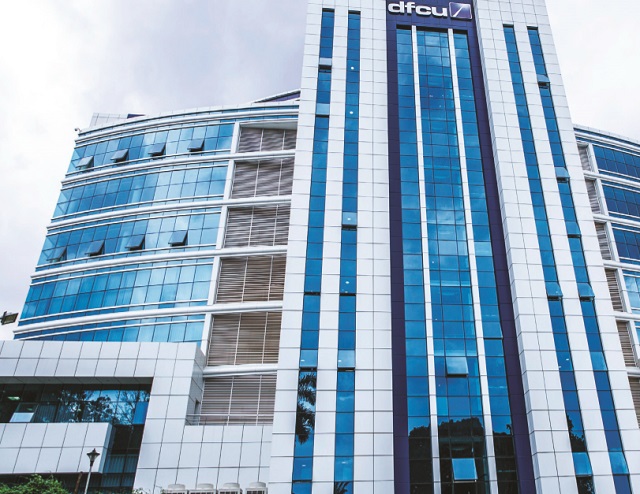
What it will take to turnaround fortunes of a bank with negative publicity and mixed performance
Kampala, Uganda | JULIUS BUSINGE | The new Chief Executive Officer of dfcu bank is many things that his predecessor is not. He is an economist, young and top business executive. He also holds a post graduate diploma in public relations.
But can he wither the challenges that the bank is grappling with – bad publicity especially on social media and legal battles?
Mathias Katamba was named CEO on October 31 replacing Juma Kisaame, an accountant who has been at the helm of the institution for the last 11 years. He has held several other positions at the bank since 1992.
He becomes the top most bank executive of the country’s second largest commercial bank at the time the institution is facing negative publicity especially on the social media ostensibly as a result of its decision to take-over some assets and liabilities of Crane Bank Limited (CBL) from Bank of Uganda last year. BoU had placed CBL under statutory management citing under-capitalisation in December 2016.
It also coincides with the more than 400 former employees of CBL suing dfcu and Bank of Uganda for breach of contract that led to their loss of jobs without compensation.
The employees are seeking for general and punitive damages arising from unlawful termination of their respective contracts of service after some getting transferred to dfcu.
These developments are coming at the time the lender’s profit growth is normalising following the full integration of assets and liabilities of the CBL.
Though Katamba, who is set to take-over the mantle in the first quarter of next year, remains mum on how he will stir the institution amidst the current challenges, economists including Makerere University’s Prof. Augustus Nuwagaba and Economic Policy Research Centre’s Isaac Shinyekwa, say there is need for the new captain to rebuild customer confidence and trust by focusing on their needs.
They also say he is supposed to deploy a flexible management strategy that connects with the changing business atmosphere.
Prof. Nuwagaba told The Independent that the new CEO must ensure that insider lending and related illegal transactions do not be part of the bank’s trade during his tenure.
“Katamba would also need time to study the management structure of the bank before implementing ‘incremental change in management’ if his leadership is to be backed by his juniors,” he said.
However, he added that Katamba’s success will also depend on whether the Board of Directors restricts itself to the oversight role instead of interfering in the general management of the bank.
“For him to succeed he will need support of the bank staff and its top leadership,”Shinyekwa added.
Katamba leaves Housing Finance Bank (HFB) with his head high as sector analysts credit him for running a profitable institution amidst a volatile economic environment characterised by high non-performing loans and decline in profits.
HFB recorded a 23% growth in net profit to Shs18.05bn in 2016, up from Shs14.7bn in 2015 and Shs 4.23bn in 2014 as result of high returns from investments in government securities, foreign exchange, and fees and commissions.
However, the bank’s non-performing loans nearly doubled to Shs30.58bn, up from Shs16.59bn in 2015 and Shs18.14bn recorded in 2014 even as bad debts written off reduced to Shs5.83bn, down from Shs8.46bn and Shs 18.94bn during the same period under review.
At HFB, Katamba’s one other task was to ensure that the people get credit to own homes. This means that although the bank was supposed to make some profits, it was not a priority like other commercial banks.
Tough task ahead
Katamba’s new move implies that he now has an enormous task to fit in the shoes of his predecessor. For instance, dfcu is listed at the Uganda Securities Exchange and its shareholders will expect consistent high returns on their investments throughout his tenure.
The bank is owned by Arise (Norfund, NorFinance, Rabobank &FMO (58.70%), Commonwealth Development Corporation (9.97%), NSSF (7.46%), Kimberlite (7.35%) and others 16.5%.
Last year, it recorded Shs114bn as net profit compared with Shs23.3bn in the previous year bolstered by the acquisition of Crane Bank.
He is also supposed to deal with the negative publicity of the institution emanating from the Crane Bank deal in order to mute likely shareholder panic that could affect its general growth.
The Auditor General, John Muwanga, in his latest report, has faulted Bank of Uganda for not following proper procedures over the sale of Crane Bank and closure of six other banks pointing to possible fraud in the transactions.
 The Independent Uganda: You get the Truth we Pay the Price
The Independent Uganda: You get the Truth we Pay the Price



